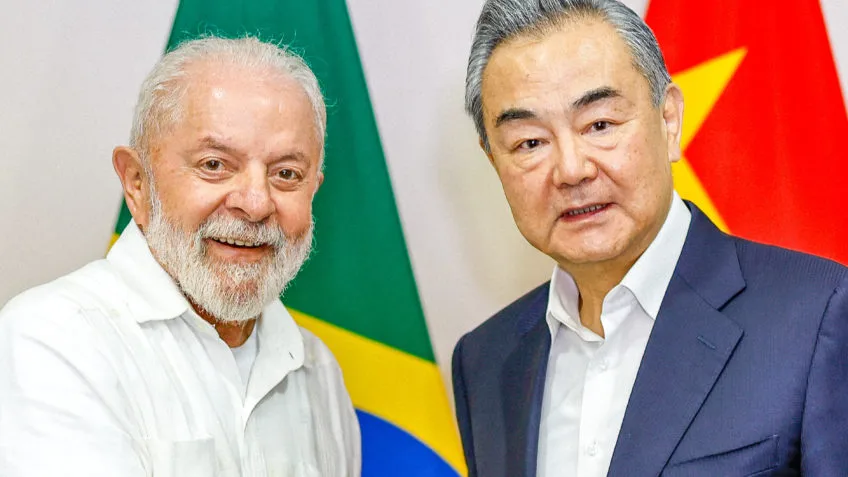In a key meeting, Brazilian President Lula and China’s Foreign Minister Wang Yi reaffirmed Brazil’s ‘One China’ policy commitment.
This policy recognizes a single Chinese state and opposes Taiwan’s independence.
The discussion at Fortaleza Air Base prepared for Chinese President Xi Jinping’s state visit to Brazil during the G20 summit in Rio de Janeiro in November.
The talks covered several areas, including Chinese electric car manufacturer BYD’s investments in Bahia.
Both parties highlighted the strong Brazil-China relationship, expressing a mutual desire to strengthen these ties.
They also explored topics like renewable energy partnerships and joint projects in Africa, showcasing Brazil’s strategic role in China’s foreign policy.

Wang Yi’s speech at the Itamaraty Palace suggested aligning China’s Belt and Road Initiative with Brazil’s Growth Acceleration Program, hinting at deeper economic cooperation.
This move could enhance infrastructure development in Brazil, a crucial aspect of its economic growth.
This meeting underscores Brazil’s strategic diplomatic stance. By aligning with China, Brazil diversifies its international alliances, moving beyond traditional Western connections.
This shift demonstrates Brazil’s adaptive foreign policy amidst changing global dynamics.
The Brazil-China discussions significantly focused on renewable energy, aiming to leverage Brazil’s natural resources with China’s technological advancements in this area.
Brazil Reaffirms ‘One China’ Policy
This cooperation aligns with global efforts towards sustainable energy and climate change combat.
In conclusion, the meeting between President Lula and Minister Wang Yi signifies a robust and forward-looking partnership.
It reflects Brazil’s commitment to a strong relationship with China, balancing economic goals with broader geopolitical considerations.
Renewable energy and infrastructure development promote a mutually beneficial partnership, benefiting both nations and the international community.

